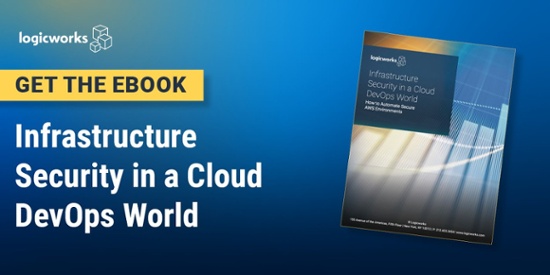What are the differences between cloud orchestration tools and cloud automation tools? An exploration of these two terms is more than a vocabulary exercise; it highlights a key challenge for teams looking to improve IT processes.
In most situations, cloud automation describes a task or function accomplished without human intervention. Cloud orchestration describes the arranging and coordination of automated tasks, ultimately resulting in a consolidated process or workflow.
It is simplest to see this in an example. To create a standard process to spin up an environment to host a new application, IT teams need to orchestrate several automated tasks: they can automate the addition of new instances during an auto scaling event with auto scaling groups, elastic load balancers, alarms, etc; the environment might also include a deployment automation tool like Code Deploy; Puppet scripts might automate the configuration of the OS; etc. All of these functions are cloud automation processes.
These cloud automation tools and activities must occur in a particular order, under certain security groups/tools, be given roles and granted permissions. In other words, engineers must complete hundreds of manual tasks to deliver the new environment, even when the building blocks of that environment are automated. This is where cloud orchestration is key.
Cloud orchestration tools, whether native to the IaaS platform or 3rd party software tools, enumerate the resources, instance types, IAM roles, etc. that are required, as well as the configuration of those resources and the interconnections between them. Engineers can use tools like AWS CloudFormation or VMware’s vRealize Orchestrator to create declarative templates that orchestrate these processes into a single workflow, so that the “new environment” workflow described above becomes a single API call.
The creation of these templates is time-consuming and challenging. However, whether the IT team is small and needs such tools to multiply and preserve manpower, or the IT team is very large and needs to maintain a single source of truth, security configuration, and approximate cost per deployment across multiple teams, cloud orchestration tools both simplify and de-risk complex IT processes.
How does orchestration relate to DevOps? Essentially, well-orchestrated IT processes enable and empower continuous integration and continuous delivery, uniting teams in the creation of a set of templates that meet developer requirements. Such templates are in many ways living documents that embody DevOps philosophy. Cloud automation is a technical task, cloud orchestration is an IT workflow composed of tasks, and DevOps is a philosophy that empowers and is powered by sophisticated, orchestrated processes.
As is already obvious, cloud orchestration tools have the potential to lower overall IT costs, free up engineering time for new projects, improve delivery times, and reduce friction between system and development teams. However, every enterprise is in a different stage of implementing the tools and the philosophy orchestration implies. Some organizations have only begun the cloud automation process, and smaller organizations may still rely on a single individual or team to be the orchestration “brain” that is coordinating IT processes. (One can imagine what happens when this individual or team leaves the organization.) On the other end of the spectrum, organizations that orchestrate automation tasks into standard but flexible IT workflows under a single monitoring and orchestration software interface are true DevOps shops.
Logicworks has over 25 years experience helping companies plan, build, and run compliant cloud infrastructure. Logicworks deploys a DevOps driven approach to enable greater availability, security, and performance. For more information, please contact sales@logicworks.com or (212) 625-5300.



3 Comments